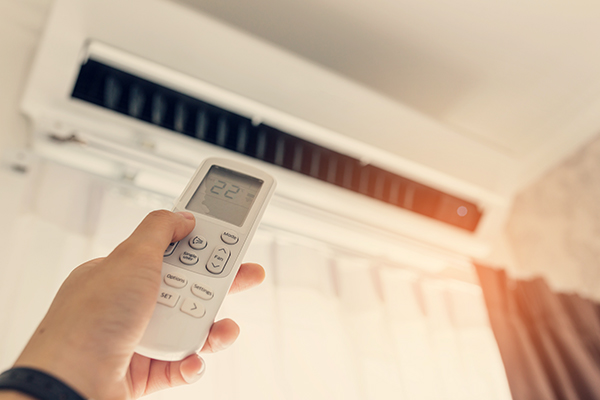31 January 2018
Using your air conditioner to reduce allergens in your home
If you’re one of the thousands suffering from a runny nose, itchy eyes and irritated skin you probably didn’t need all the flowery memes which have overtaken social media in the past few days reminding us that spring is here. Allergy and hay fever sufferers feel the effects of the seasons changing long before the calendar flips over to September.
At this time of year, when airborne pollens are at their peak, it can be difficult to find respite from hay fever symptoms anywhere. There are, however, ways you can reduce your exposure to allergens and find some relief at home. By using your air conditioner to filter the air as it enters your home you can significantly decrease exposure to airborne allergens making your home a more comfortable place to be this spring.
Keep filters clean
Ensure the air conditioner filter is cleaned regularly to provide maximum filtration. Our air conditioning team recommend every two weeks during frequent use.
- Remove the filter from the unit
- wash in warm soapy water
- allowing to dry fully before replacing
- Some models have an automatic cleaning function that can be used instead.
If your air conditioning system uses disposable filters be sure to replace them regularly.
Invest in a professional air conditioner clean at least once a year. A thorough clean will remove any mould, mildew and bacteria growing inside the unit in areas you can’t get to.
A clean air conditioner operates more efficiently than a dirty one so a regular wash can also reduce running costs.
Clear the intake
Clear trees, bushes, dirt, and debris build-up from around the outdoor unit to ensure the air can move freely into the home and it isn’t drawing in dust which can quickly clog the filter system up reducing its efficiency.
Frequent dusting will stop the air conditioner fan from re-distributing dust which has settled on the surfaces around your home.
What to look for when choosing an air conditioner
When choosing an air conditioner look for advanced air purifying filter systems such as apple-catechin filters, ion deodorization filters, or Daikin’s titanium apatite photocatalytic air-purifying filter which traps most microscopic particles like pollen, dust, bacteria, mould, and germs as well as bad odours.
The National Asthma Council Australia’s Sensitive Choice program is a great resource as it offers product recommendations to help asthma and allergy sufferers choose the best products for their needs. Find out more at – www.sensitivechoice.com
Create a hay fever haven in your home this spring by using your air conditioner to reduce allergens and pollen in your living environment.
Related air conditioning posts
- Air conditioning vs evaporative cooling, the pros and cons
- When Should You Replace Your Air Conditioner?
Suggested articles
No articles found

